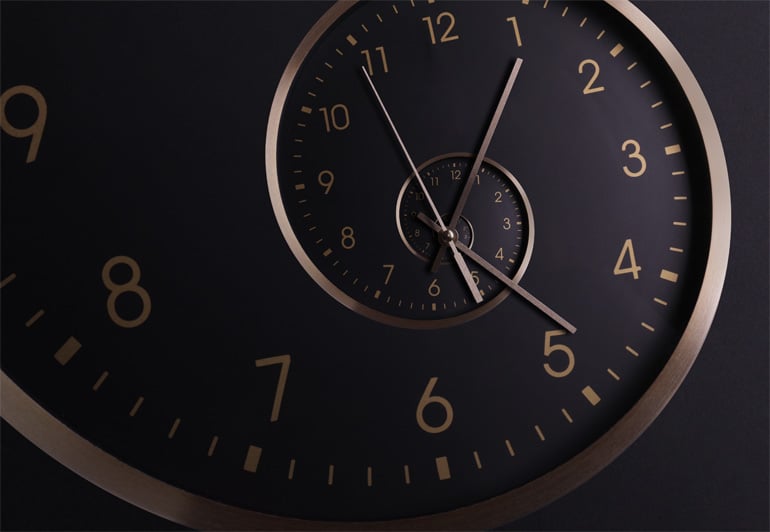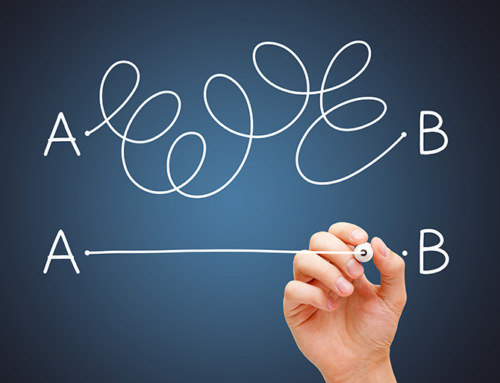This post is a part of a series on work burnout. Here I focus on the busyness that is a frequent contributor and maintainer of burnout. Focusing on busyness may appear to be peripheral to a discussion of burnout. However, I want to show how even this one component of burnout has deleterious and self-perpetuating aspects, leading to vicious cycles or, to be more dramatic, to doom loops. The scary thing about burnout is that all the components, including this one, form dynamically worsening vicious cycles. These cycles feed on themselves and also on each other and, thereby, increase the ferocity and intractability of burnout. The take home message I want to share is that it’s best to identify the contributors to burnout, like busyness, and act to neutralize them before they become burnout. Once burnout sets in, it usually worsens and becomes increasingly intractable over time.
Busyness is a self-perpetuating way of being. When we’re busy, at each moment we’re often already on to the next thing. Even as we’re completing one task – giving it our partial attention – we’re already thinking ahead and often worrying about the next task – lending it the rest of our often chronically split attention. This state of affairs has several negative consequences:
First, when our attention is split thusly, we’re never really fully immersed in our current activity. We can’t enter it fully, embrace, feel, and experience it. When we’re with another person, be it a patient, friend, spouse, or significant other, we’re never fully giving ourselves over to that person.
Second, not only are we not giving ourselves over to the people with whom we have some type of meaningful relationship, we also can’t fully give ourselves over to our own selves. We are never fully savoring, enjoying, resting in, contributing to, learning from, or participating in our presently ongoing activity. We live life only partially present to ourselves and to the community of others around us.
Third, even though when in a state of busyness, we’re always attending to the next thing, the form of attention we expend on that next thing ends up distancing us from it through the act of attending to it beforehand. This is because the way we attend to that which is upcoming is often done from a place of stress or duress. We often imagine that next task or event as something unwanted and unpleasant. This is because it adds to the sheer overwhelmingness of the incessant flow of all that confronts us. The upcoming activity, even if it is by its nature something that would normally be experienced as enjoyable or joyful, ends up instead experienced as something doing nothing more than adding to the already existing stress.
Fourth, when we are busy, with our piled-upon and partially attended-to activities, we also lack time to reflect on, discern and judge, and implement changes in our lives. We are caught in a swiftly flowing river, with heads bobbing in and out of the water. We’re hanging on, sometimes for dear life. We have neither the time nor the mental wherewithal to think long term. Busyness has captured us. Its sheer flow, its flagrancy, its ongoing sense of crisis, does not give us the time or opportunity to escape it. To escape it requires relief from that incessant flow, moments of distance and reflection, all those things that are exactly what is missing. Busyness, by its nature and its very definition makes unavailable exactly that which would allow us to escape from it.
Busyness, thus, distances us from others, ourselves, our current activity, our future activity, and our escape from busyness.
Let me pause here. I think this is profoundly sad. Here we all are, the most privileged, educated people in one of the richest countries the world has ever seen, and yet so many of us are under stress, overscheduled, and/or in frank burnout. This has the consequence of a life chronically lived in a ghost-like state, of perpetual semi-presence, ongoing split attention, never at rest, never fully present.
I can only say to you; please find a way out of such busyness, stress, or burnout. I know it is easier said than done. But done it can be. The first step is acknowledging the unnaturalness, unacceptability of living this way, and not allowing others to impose conditions on you that lead to such a state, and not allowing yourself to put up with it.
Now, I know that medical training and practice is hard and time-consuming. I like hard work. There is a time for it. I find it best to work hard in sprints, interspersed with periods of relatively less work – or no work, if you can pull it off.
But what is often unsustainable and intolerable is when the level of work appropriate to a sprint turns into a career-long marathon. Something needs to give and give it will. What gives is often your health, your physical and mental wellbeing.
I often point out that the clinicians who do the most good over a lifetime career are the ones who work sustainably. They last longest, both because their sustainable approach is enjoyable and does not give reason to leave and because their physical and mental wellbeing allows them to keep working.
Next time I’ll say more about burnout and work sustainability. In the meantime, I look forward to your comments, be they critical or supportive of what I wrote or, instead, raise new aspects of the topic. Share your wisdom with us. Present me a work scenario from your own work. Or just ask a question.
Thank you,
‘Til next time,
Dr. Jack
Language Brief
“Arise, eat, and rest with no remorse, because the journey is long.” ― Dr. Lucas D. Shallua
“The fear of death follows from the fear of life. A man who lives fully is prepared to die at any time.” ― Mark Twain
“I don’t care what you think about me. I don’t think about you at all.” ― Coco Chanel
“Burnout is nature’s way if telling you you’ve been going through the motions your soul has departed.” – Sam Keen







The picture is of Fenway Park, Boston !